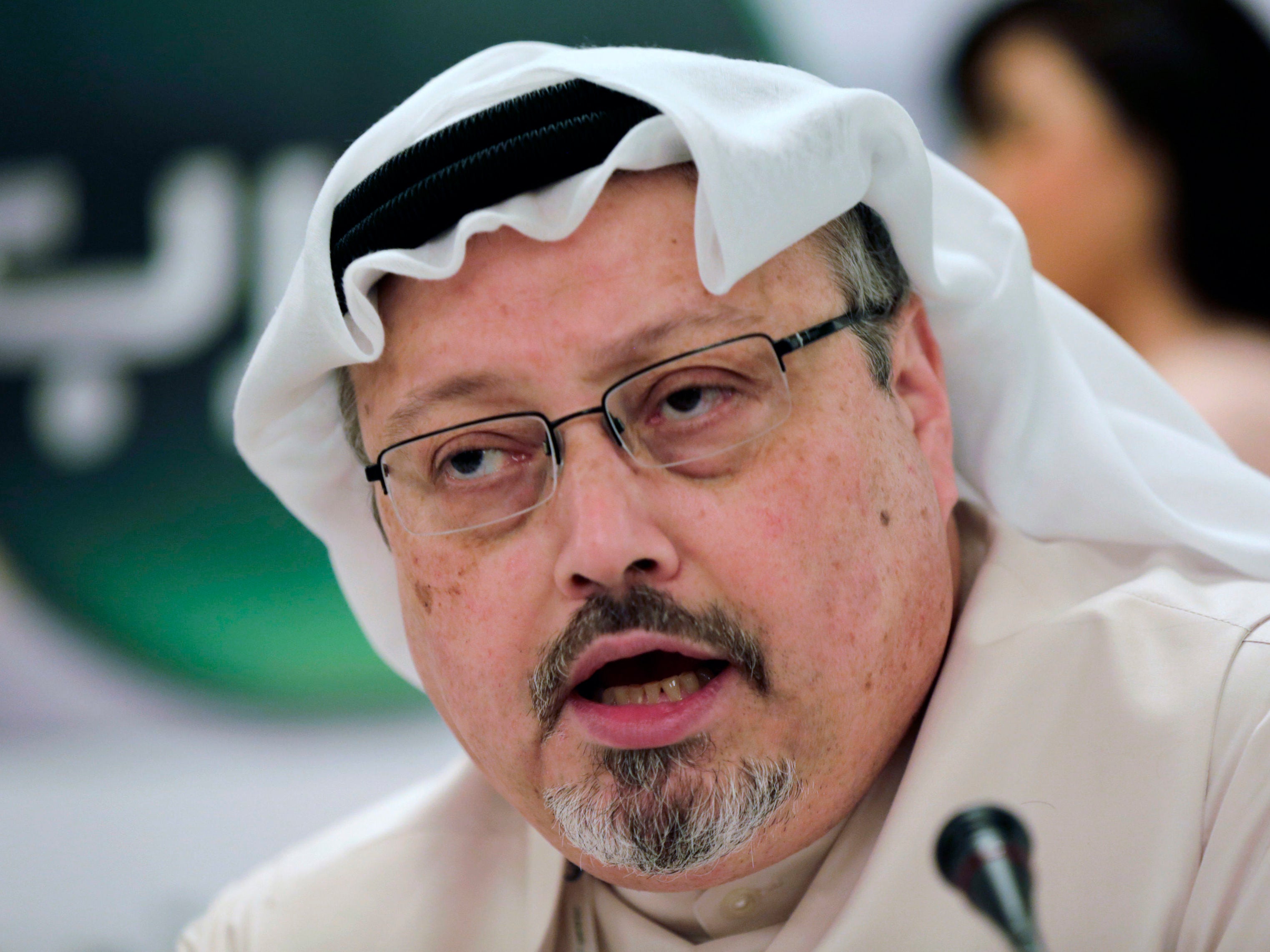
One hundred days have now passed since Washington Post journalist Jamal Khashoggi was killed by Saudi Arabian agents, with 11 people accused of his murder first appearing in court just days ago.
The Post marked the milestone by launching an Arabic-language version of its global opinions section, which will run translations of articles alongside new content from its writers in the Middle East and North Africa.
Fred Hiatt, editorial page editor at The Post, said: “This page will make it easier for more readers to access free and independent commentary about the cultural and political topics that most impact them.
“The importance of this has become more evident since the murder of our own colleague Jamal Khashoggi, who saw very clearly the need for a forum such as this.”
Khashoggi was an outspoken critic of the Saudi regime, led by King Salman bin Abdulaziz al-Saud and his son, Crown Prince Mohammed Bin Salman. One of the prince’s senior aides is alleged to have overseen the murder.
Khashoggi was killed on 2 October last year after he went into the Saudi consulate in Istanbul, Turkey, to obtain divorce documents. His new fiancee was waiting outside and never saw him again.
Below are details about Khashoggi’s life and key events that have taken place before and after his death.
Khashoggi’s life and career
Khashoggi was a foreign correspondent and editor with more than 20 years’ experience on titles including English language newspapers Saudi Gazette and Arab News, as well as pan-Arabic dailies Alsharq Alawsat and Al-Hayat.
In 2003 he became editor-in-chief of reformist newspaper Al-Watan, but was fired less than two months later for his editorial stance which frequently criticised the Saudi religious leadership.
He returned to the role in 2007 but was fired again in 2010 due to what he called his “editorial style, pushing boundaries of discussion and debate within Saudi society”.
Between 2003 and 2007 Khashoggi worked as the media adviser for Prince Turki Al-Faisal, the Saudi ambassador in London and then Washington.
He moved to the US in 2017 in self-imposed exile after Saudi Arabia banned him from writing, making TV appearances and attending conferences in retaliation to his criticism of then President-elect Donald Trump at a Washington think-tank event.
He became a Washington Post columnist in September 2017 and wrote in his first piece for the US newspaper about his decision to leave Saudi Arabia.
He wrote: “I have left my home, my family and my job, and I am raising my voice. To do otherwise would betray those who languish in prison. I can speak when so many cannot. I want you to know that Saudi Arabia has not always been as it is now. We Saudis deserve better.”
Timeline of events around Khashoggi’s death
2 October 2017
CCTV hard drives were removed from the consulate in Istanbul and staff working there were gathered in a room and told to go home early, according to Turkish President Recep Tayyip Erdogan.
Khashoggi arrived at the Saudi embassy in Istanbul in the afternoon with his fiancee Hatice Cengiz to pick up paperwork needed for their wedding.
Cengiz has told Turkish broadcaster Haberturk that Khashoggi had been worried about visiting the consulate but that he did not believe he would be arrested or interrogated in a foreign country.
She also said that he was treated well on a previous visit to the consulate on 28 September. Cengiz stood outside the consulate for about 11 hours until 1am, waiting for her fiancé to reappear, but she never saw him again.
Turkish newspaper Yeni Safak has reported that it heard an audio recording in which Saudi consul general Mohammed al-Otaibi could be heard saying: “If you want to live, be quiet.”
It also said he could be heard telling those allegedly torturing Khashoggi: “Do this outside, you’re going to get me in trouble.”
The newspaper said one of the Saudis torturing Khashoggi replied: “Shut up if you want to live when you return to (Saudi) Arabia.”
A man who was not Khashoggi but was dressed in the journalist’s clothes and glasses and left the building before leaving by plane for Saudi capital Riyadh.
5 October
After global attention following reports of the missing journalist, Saudi Crown Prince Mohammed bin Salman told Bloomberg Khashoggi was believed to have left the consulate “after a few minutes or one hour”.
“I’m not sure. We are investigating this through the foreign ministry to see exactly what happened at that time.”
Responding to a statement from Turkish officials that Khashoggi was still inside the consulate, bin Salman added: “We are ready to welcome the Turkish government to go and search our premises.
“The premises are sovereign territory, but we will allow them to enter and search and do whatever they want to do. If they ask for that, of course, we will allow them. We have nothing to hide.”
15 October
Turkish police finally began to search the Saudi consulate building and found “certain evidence” Khashoggi was killed there. They were later denied permission to search a water well in the garden.
By this time a number of newsbrands, including the Financial Times, the New York Times and Bloomberg, had withdrawn from partnerships with the Future Investment Initiative economic conference in Riyadh – known as Davos in the desert – while Virgin founder Sir Richard Branson also froze several business links with the state.
17 October
The Washington Post published a new column by the still unaccounted for Khashoggi, in which he warned that governments in the Middle East “have been given free rein to continue silencing the media at an increasing rate”.
19 October
Saudi authorities finally admitted Khashoggi is no longer alive, saying he died in a fistfight within the consulate.
UK Prime Minister Theresa May later said the claim of a fight “does not amount to a credible explanation” as she was pushed for decisive action in the Commons, while US President Donald Trump threatened “very severe” consequences if the Saudis were found to have murdered him.
21 October
Saudi foreign minister Adel al-Jubeir said Khashoggi was killed in a “rogue operation” without the knowledge of the Crown Prince, undermining the claim of a fistfight.
23 October
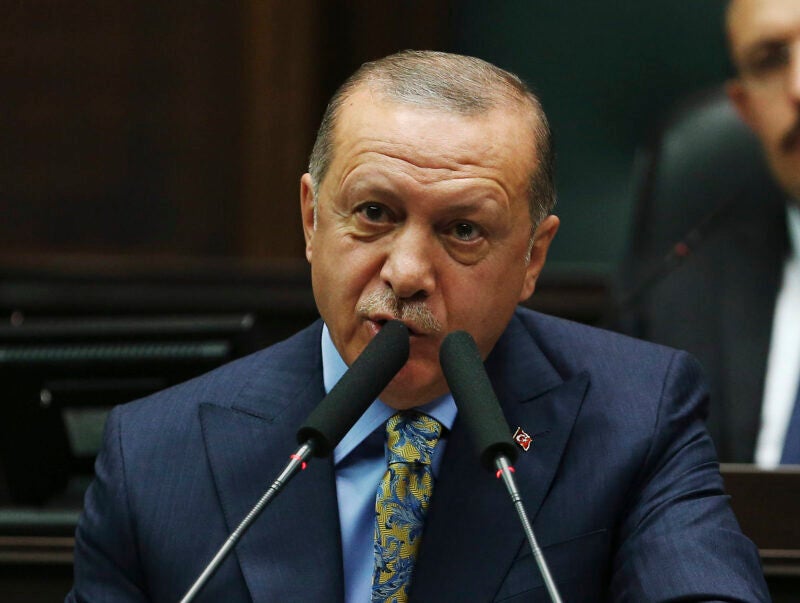
Turkey’s President Recep Tayyip Erdogan addresses members of his ruling Justice and Development Party (AKP), in Ankara, Turkey, Tuesday, Oct. 23, 2018. Picture: AP Photo/Ali Unal
In a much-anticipated speech, Erdogan said Turkey had concluded Khashoggi’s assassination was planned days in advance and was “obviously a political crime”.
Erdogan called on Saudi King Salman and the Saudi authorities to allow Turkey to conduct a criminal investigation because the incident took place in Istanbul, and questioned where Khashoggi’s body is.
The journalist’s remains have still not been located.
24 October
US President Donald Trump said the killing was a “very bad original concept” and was “carried out poorly” before describing the Saudi response as the “worst cover-up ever”.
25 October
Saudi Arabia’s public prosecutor was quoted on as saying the killing was premeditated.
“Information from the Turkish side affirms that the suspects in Khashoggi’s case premeditated their crime,” he said.
31 October
Chief Istanbul prosecutor Irfan Fidan’s office issued the first public confirmation by a Turkish official that Khashoggi was strangled and dismembered after he entered the consulate.
2 November
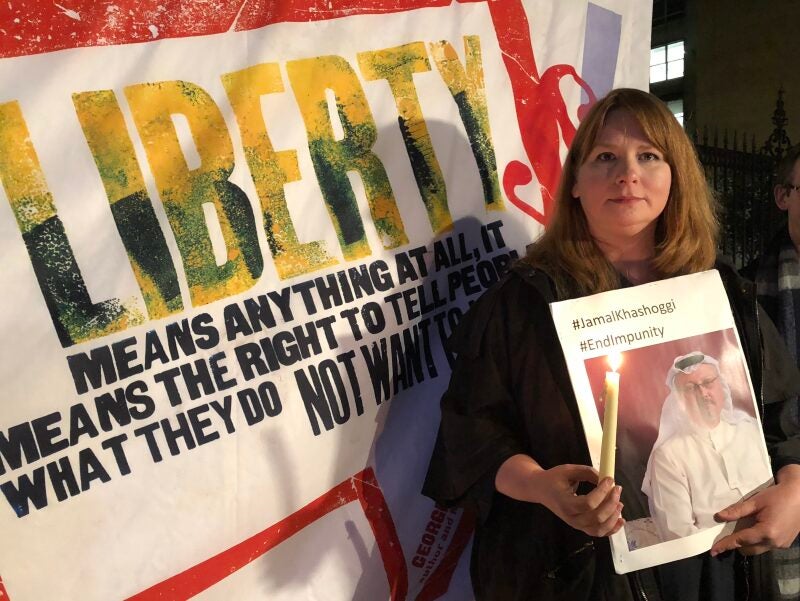
NUJ silent vigil outside Saudi embassy. Picture: National Union of Journalists.
The National Union of Journalists organised vigils to mark one month since Khashoggi’s death outside the Saudi embassies in London and Dublin.
NUJ general secretary Michelle Stanistreet said: “This vigil is to mark the contribution to journalism and principled values of Jamal Khashoggi and to protest to the Saudi authorities, implicated in his murder, of our deep shock and anger at his violent killing.
12 November
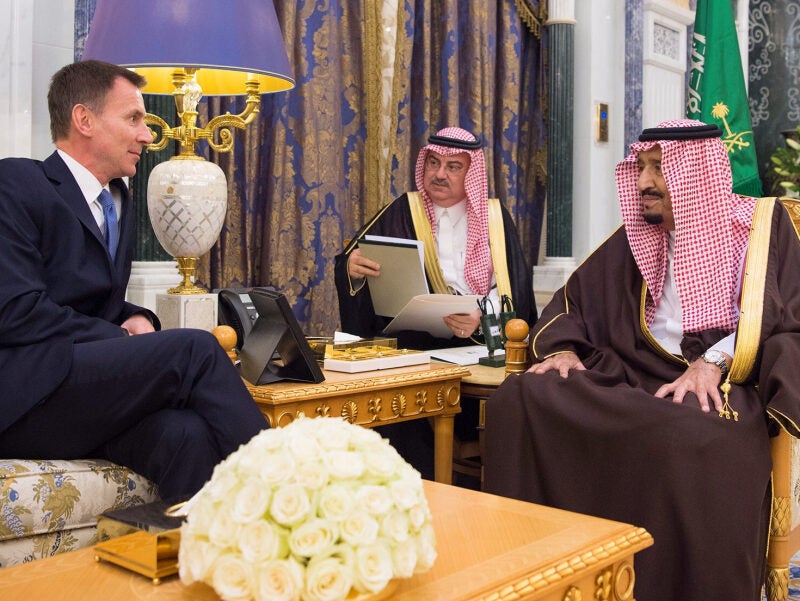
Saudi Arabia’s King Salman bin Abdulaziz Al Saud meets with British Foreign Secretary Jeremy Hunt, in Riyadh, Saudi Arabia November 12, 2018. Picture: Bandar Algaloud/Courtesy of Saudi Royal Court/Handout via Reuters
UK Foreign Secretary Jeremy Hunt met King Salman of Saudi Arabia to encourage the Saudi authorities to co-operate with the Turkish investigation.
15 November
Saudi deputy attorney-general Sheikh Shalan al-Shalan said the killing was ordered by one man: the individual responsible for the negotiating team sent to forcibly bring Khashoggi back to Saudi Arabia.
He said that on the morning of the killing, the leader of the negotiating team saw that he would not be able to force Khashoggi to return “so he decided to kill him in the moment”.
20 November
US President Donald Trump announced that he had decided not to punish Saudi Arabia over Khashoggi’s death, saying the country is a “great ally”.
He said calls to stop arms trading with the Middle Eastern kingdom, worth billions of dollars, would only benefit Russia and China who would snap it up instead.
22 November
Trump claimed the CIA had not come to a conclusion on whether the killing was ordered by bin Salman, contrary to reporting from the Washington Post.
Days later Democrat Adam Schiff told CNN: “I think the president is being dishonest with the American people.”
30 November
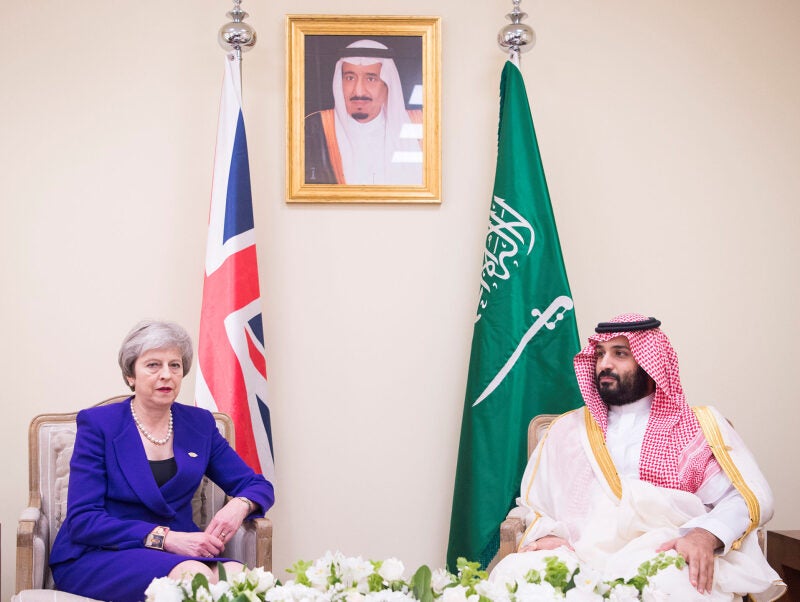
Saudi Crown Prince Mohammed bin Salman meets with Britain’s Prime Minister Theresa May during the G20 summit, in Buenos Aires, Argentina, December 1, 2018. Picture: Bandar Algaloud/Courtesy of Saudi Royal Court/Handout via Reuters
Theresa May met bin Salman at the G20 summit in Argentina and took the opportunity to emphasise the importance of a “full, credible and transparent” investigation into Khashoggi’s death.
But Labour leader Jeremy Corbyn soon slammed her actions, saying: “Rather than be robust, as she promised, we learned the Prime Minister told the dictator ‘please don’t use the weapons we are selling you in the war you’re waging’ and asked him nicely to investigate the murder he allegedly ordered.
“Leaders should not just offer warm words against human rights atrocities but back up their words with action.”
4 December
CIA director Gina Haspel, who has heard tapes of the killing obtained by Turkish intelligence, held a classified briefing with US senators who told reporters it had made them certain bin Salman ordered Khashoggi’s murder.
“If the crown prince went in front of a jury he would be convicted in 30 minutes,” Bob Corker, the Republican chair of the Senate foreign relations committee, said.
11 December
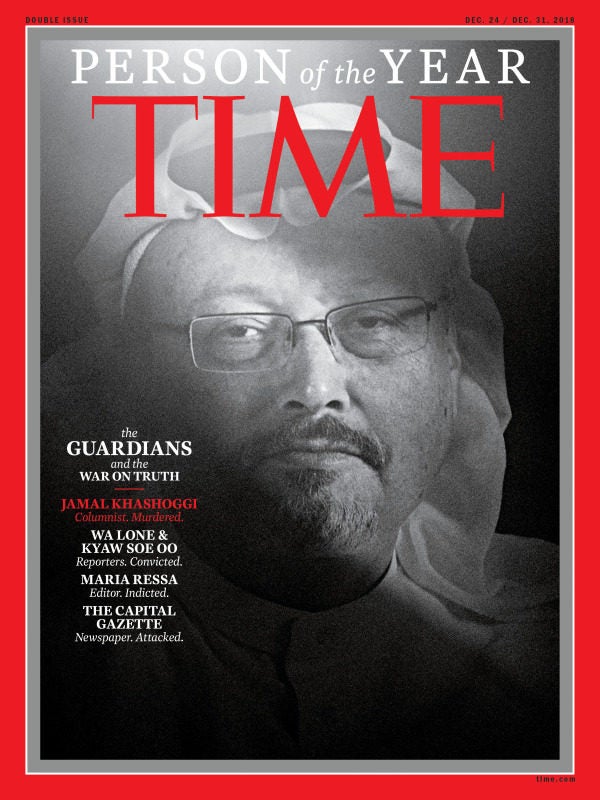
Jamal Khashoggi Time Person of the Year cover.
Time magazine collectively honoured Khashoggi and other oppressed journalists as its Person of the Year for 2018.
Khashoggi was the magazine’s first-ever deceased person to be given the accolade, with editor-in-chief Edward Felsenthal explaining it is “rare that a person’s influence grows so immensely in death”.
3 January 2018
Eleven suspects in the killing appeared in court in Saudi Arabia for the first time, with the public prosecutor seeking the death penalty for five of the men.
At the hearing, defendants requested a copy of the indictment and additional time to respond. They have not yet been named.
10 January
To mark 100 days since Khashoggi’s killing, Amnesty International held a vigil outside the Saudi consulate in Istanbul and repeated its call for the United Nations to open an independent investigation.
More than a dozen US senators and members of the House of Representatives from both main parties called again for Saudi Arabia to be held accountable by Washington.
Picture: AP Photo/Hasan Jamali/File
Email pged@pressgazette.co.uk to point out mistakes, provide story tips or send in a letter for publication on our "Letters Page" blog
